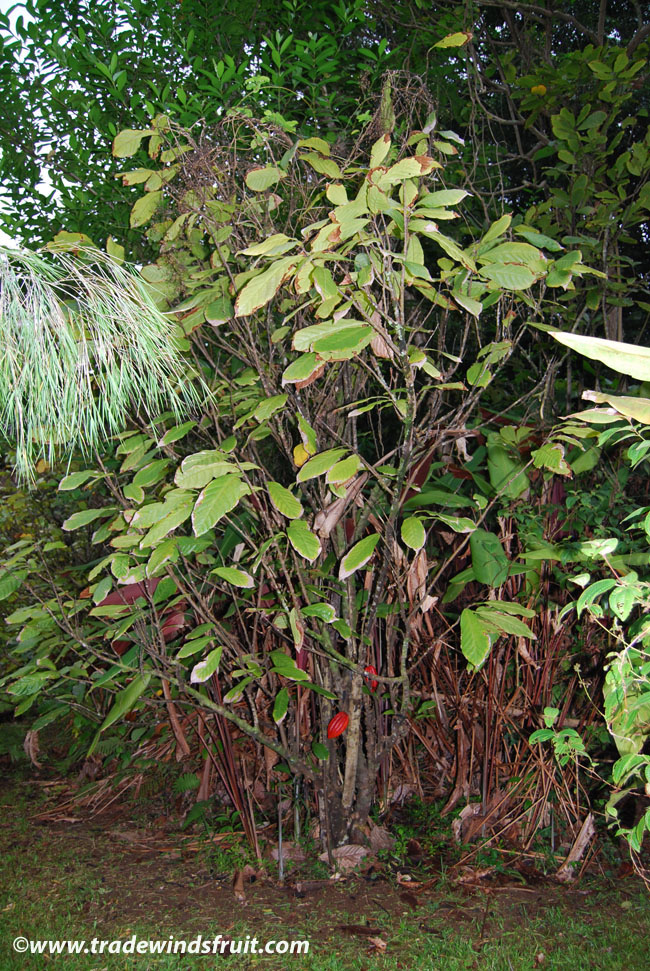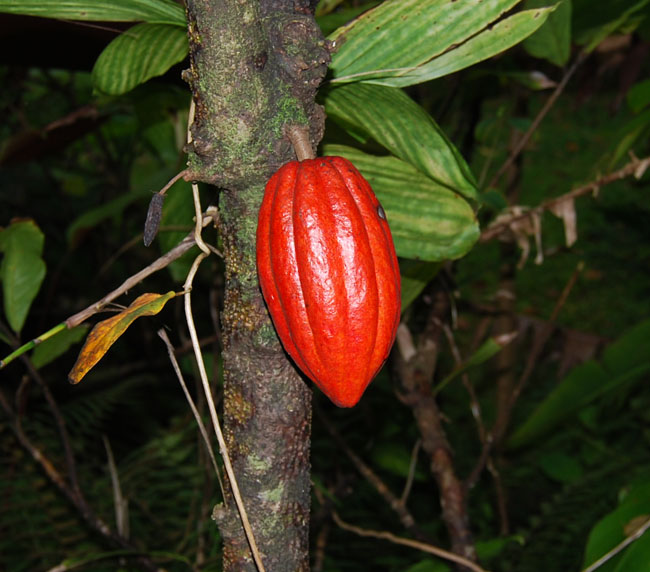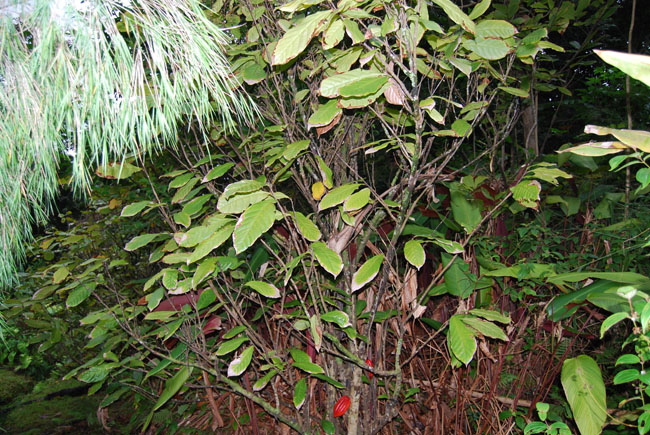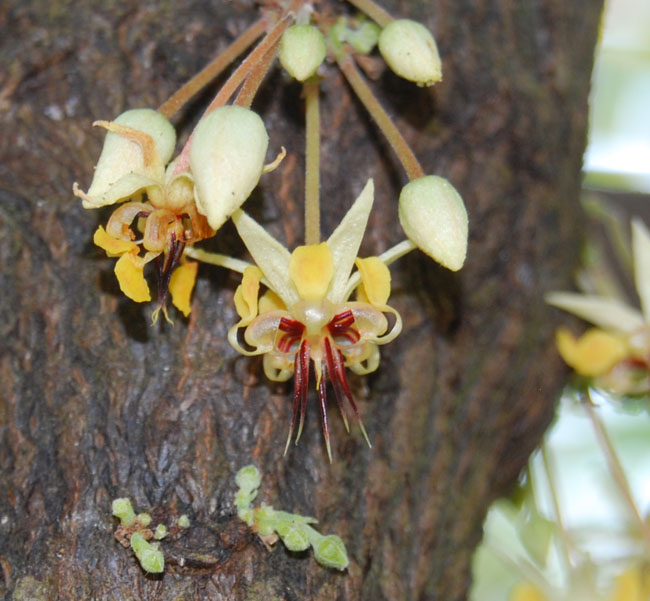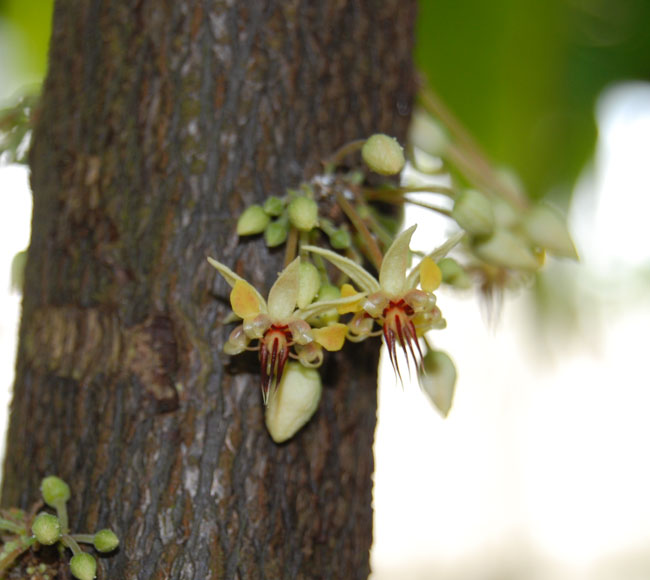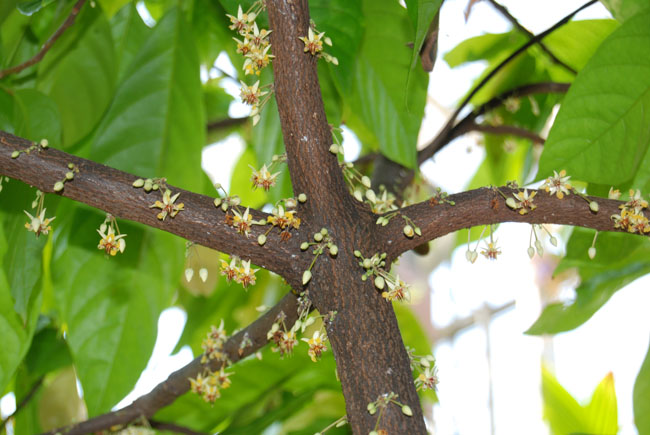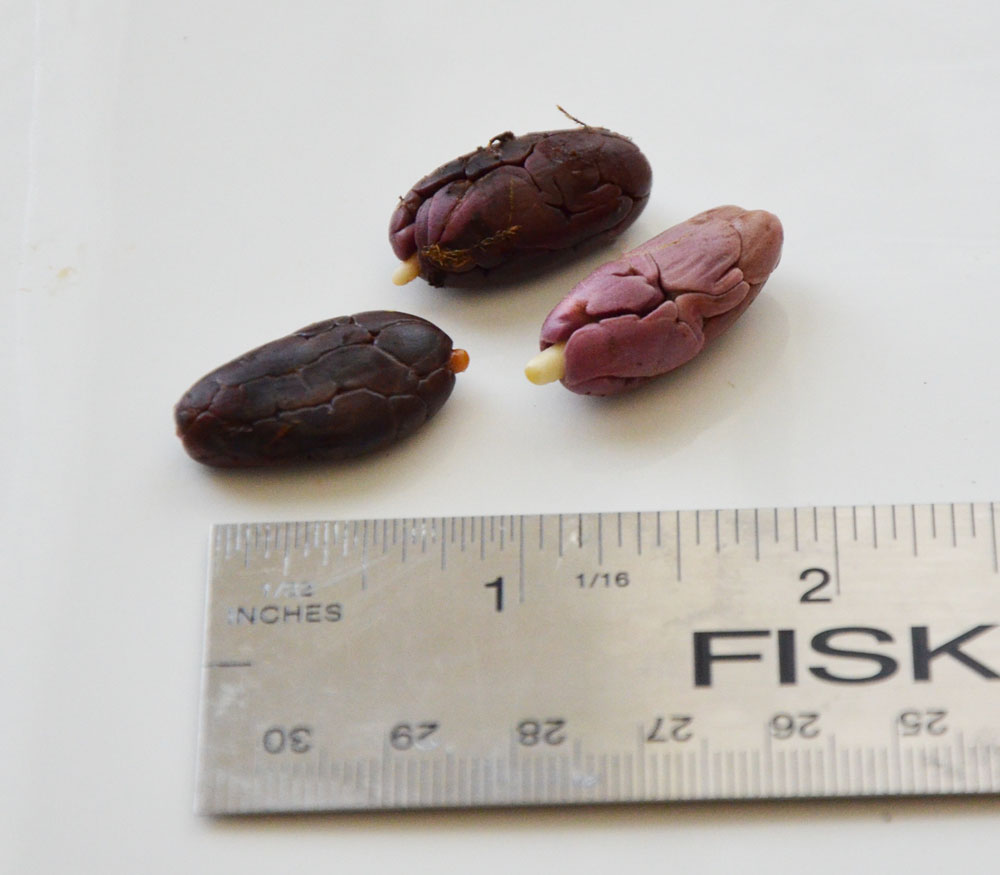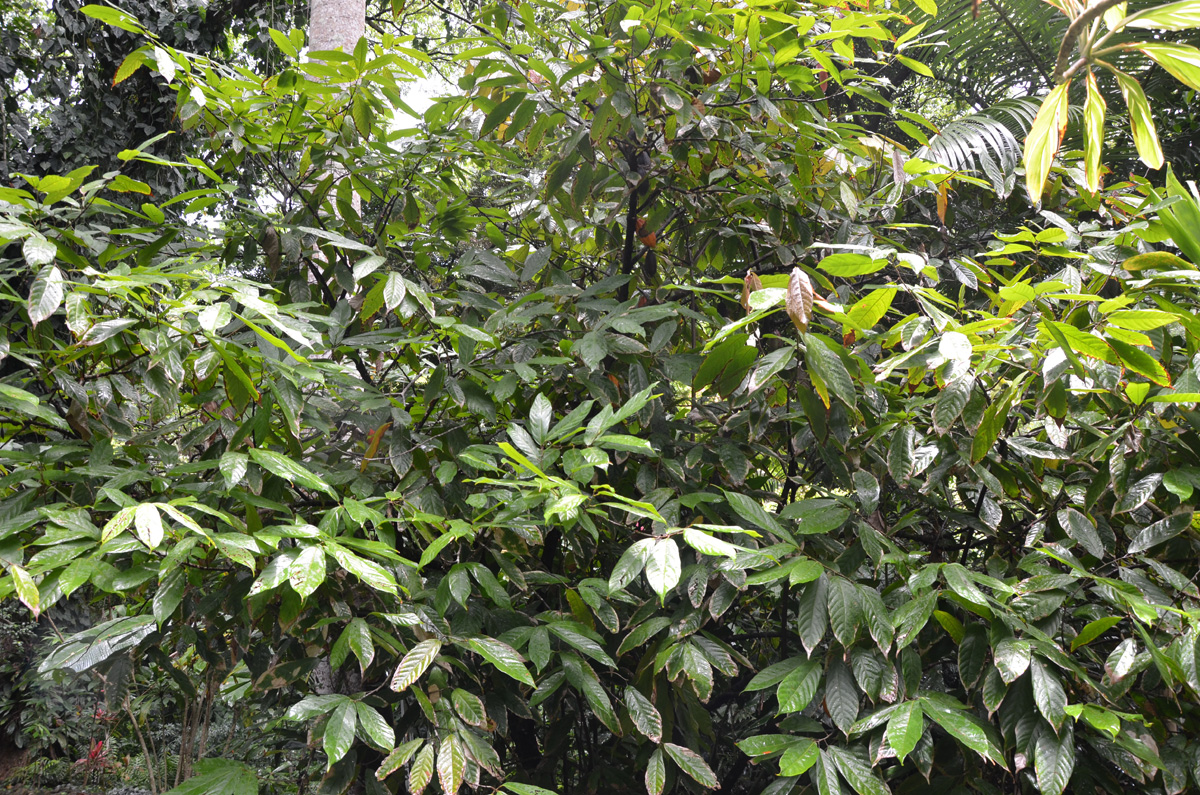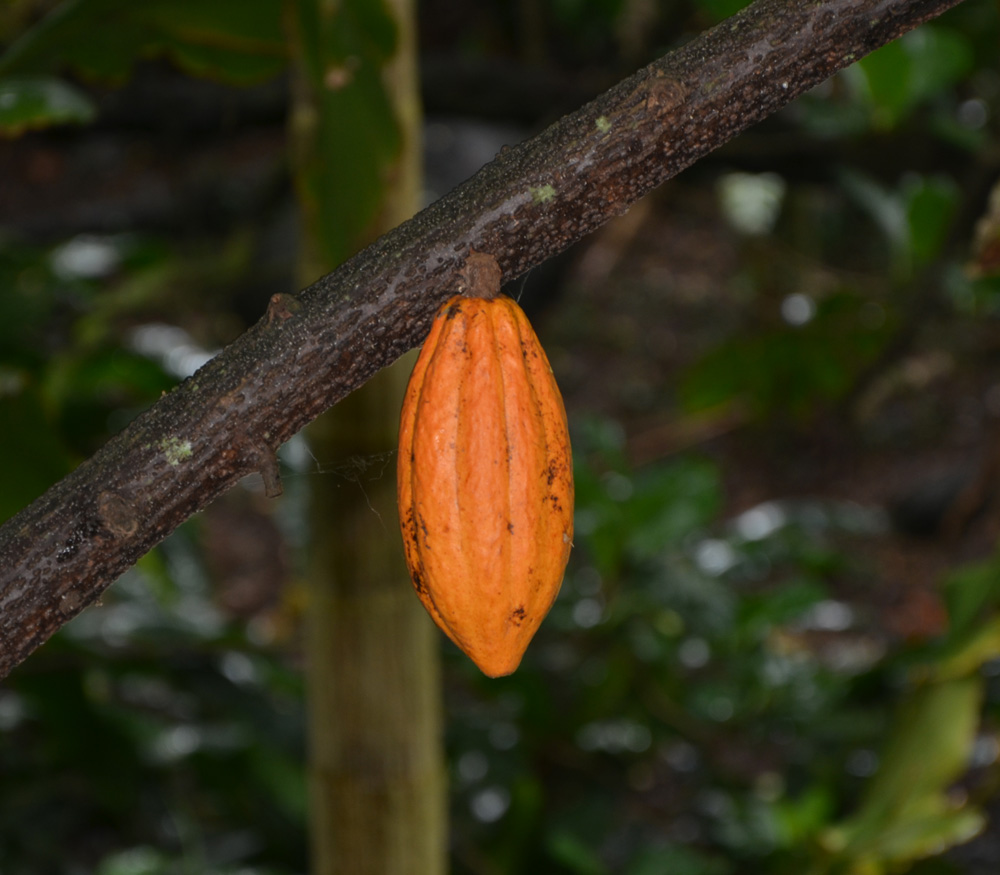- Home »
- Information »
- Cacao
Cacao
Theobroma cacao
Large, podded fruit, colored either red, yellow, green or a combination of the three. Pulp is white, edible, and surrounds 20-60 seeds which when fermented and roasted, become the cocoa beans of commerce.
Seed Availability
Seeds are not available for the Cacao. Please visit our seed store to view current selections. Seeds were last available in May 2017.
Description
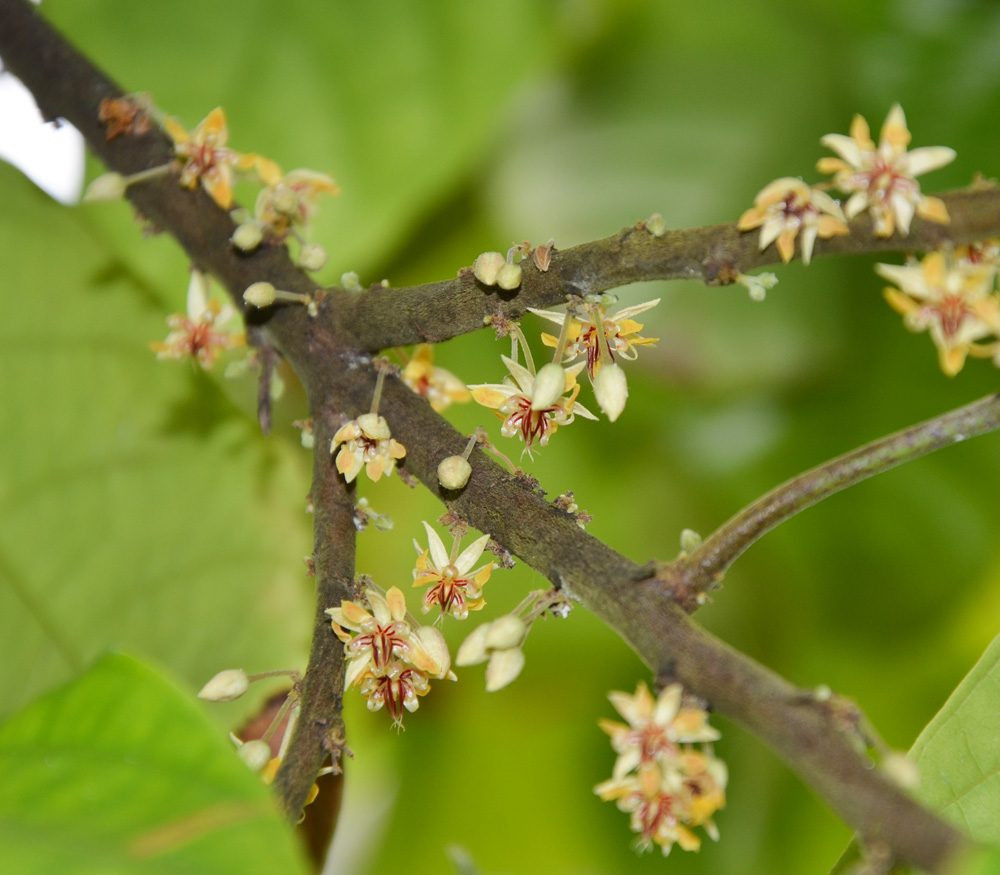 A small and pretty understory rainforest tree, usually only 10-20ft tall, although occasionally higher. The tree is small and can be container grown. After 2-3 years from planting, flowers may form and are produced in the thousands from the trunk and main branches (cauliflory). However, only a tiny percentage of the flowers go on to bear fruit. There are two main subspecies of Theobroma cacao: T. cacao ssp. cacao, commonly known as the Criollo line, and T. cacao ssp. sphaerocarpum, also known as the Calabicillo line. Calabicillo cacao is native to the Amazon and Orinoco river region, while Criollo cacao is native to Southern Mexico, Guatemala, and Belize. Most of the world production of cocoa comes from the Calabicillo line, as the trees tend to be more vigorous and are less susceptible to diseases. However, the flavor of Criollo beans is reputedly better. Hybrids of the two subspecies are called Forastero cacao's.
A small and pretty understory rainforest tree, usually only 10-20ft tall, although occasionally higher. The tree is small and can be container grown. After 2-3 years from planting, flowers may form and are produced in the thousands from the trunk and main branches (cauliflory). However, only a tiny percentage of the flowers go on to bear fruit. There are two main subspecies of Theobroma cacao: T. cacao ssp. cacao, commonly known as the Criollo line, and T. cacao ssp. sphaerocarpum, also known as the Calabicillo line. Calabicillo cacao is native to the Amazon and Orinoco river region, while Criollo cacao is native to Southern Mexico, Guatemala, and Belize. Most of the world production of cocoa comes from the Calabicillo line, as the trees tend to be more vigorous and are less susceptible to diseases. However, the flavor of Criollo beans is reputedly better. Hybrids of the two subspecies are called Forastero cacao's.
Hardiness
Cacao trees are strictly tropical and are usually killed if temperatures drop even briefly below 40F, or exceed 100F. Prolonged exposure (days to weeks) to temperatures below 55F is fatal. Sunset Zones: 23, 24, H1, H2 USDA: 11+
Growing Environment
The trees thrive in areas of high humidity and rainfall, and prefer rich, organic, well-drained soils. Flooding or droughts are not tolerated.
Propagation
By seeds, which should never be dried if intended for propagation.
Uses
Pulp is sometimes eaten fresh. Seeds are removed from the pods, fermented for 2-8 days and left to dry in the sun. Following this they are roasted and processed for use as cocoa. Fat extracted from the seeds is cocoa butter and has a variety of cosmetic and dietary uses. Cacao beans were once used as a currency.
Native Range
Native to lowland rainforest regions of Central and Northern South America, particularly those of the Orinoco and Amazon rivers. The scientific genus name, Theobroma, means fruit of the Gods.
Additional Pictures
Related Species
| Malvaceae | |||
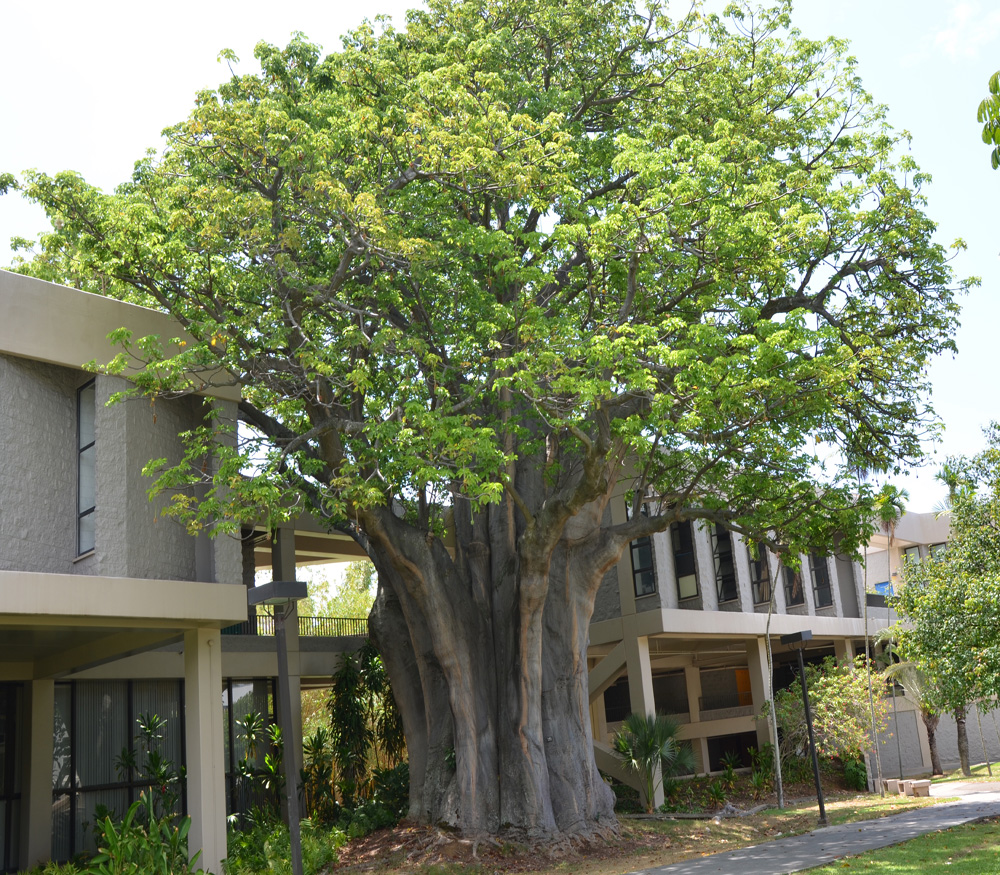 |
Adansonia digitata Baobab |
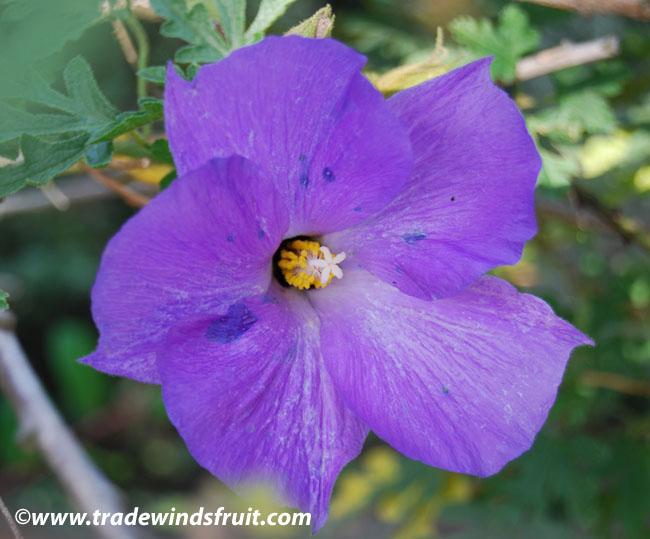 |
Alyogyne huegelii Blue Hibiscus |
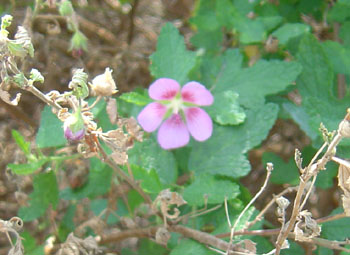 |
Ansiodontea x hypomandarum Cape Mallow |
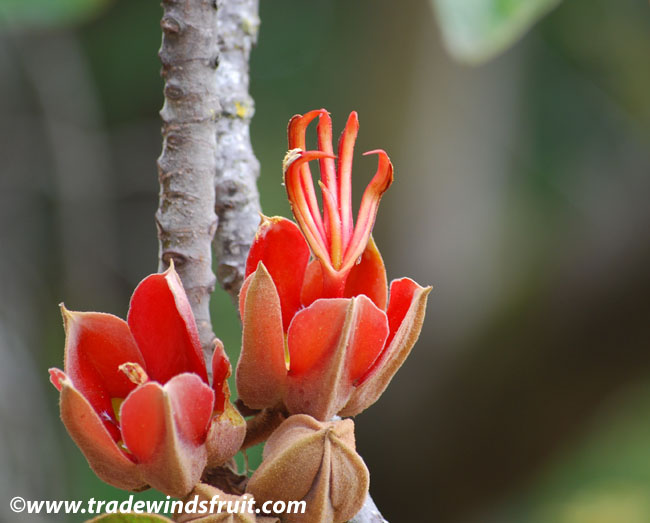 |
Chiranthodendron pentadactylon Mexican Hand Tree |
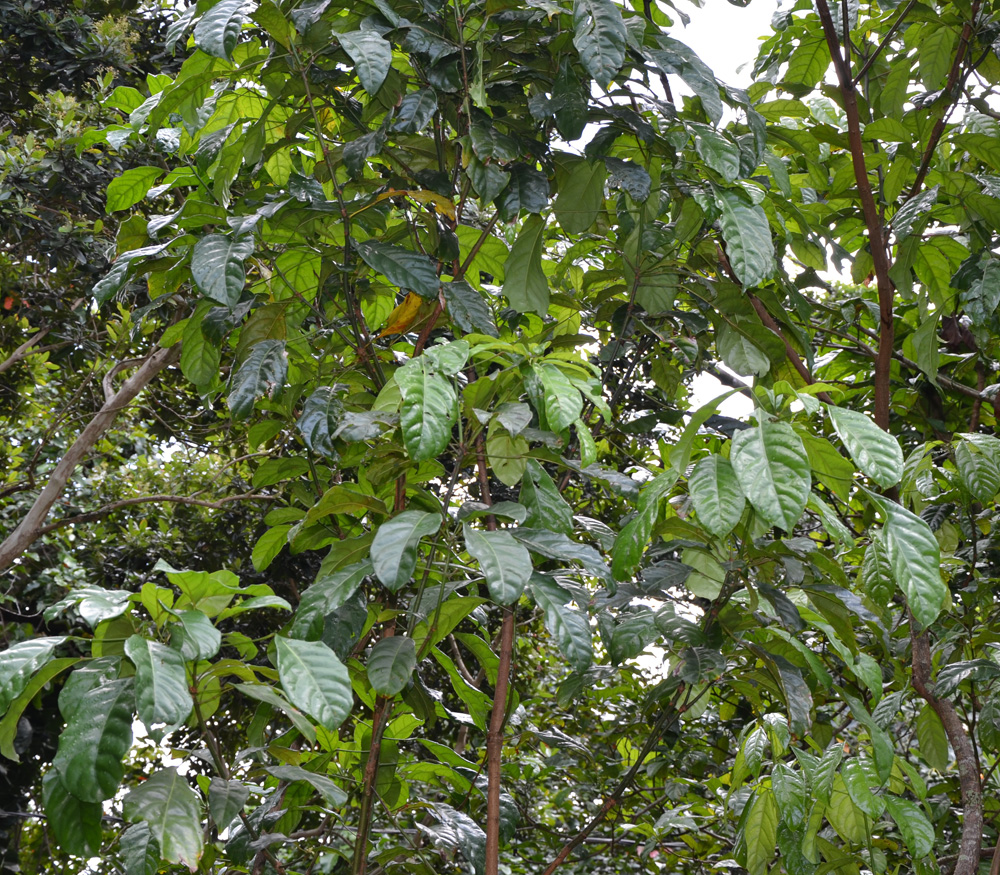 |
Cola acuminata Cola Nut |
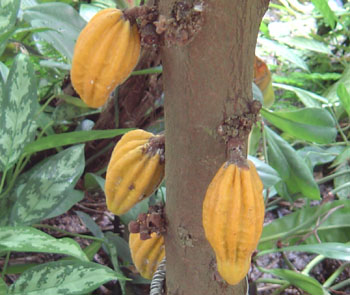 |
Herrania imbricata Monkey Cacao |
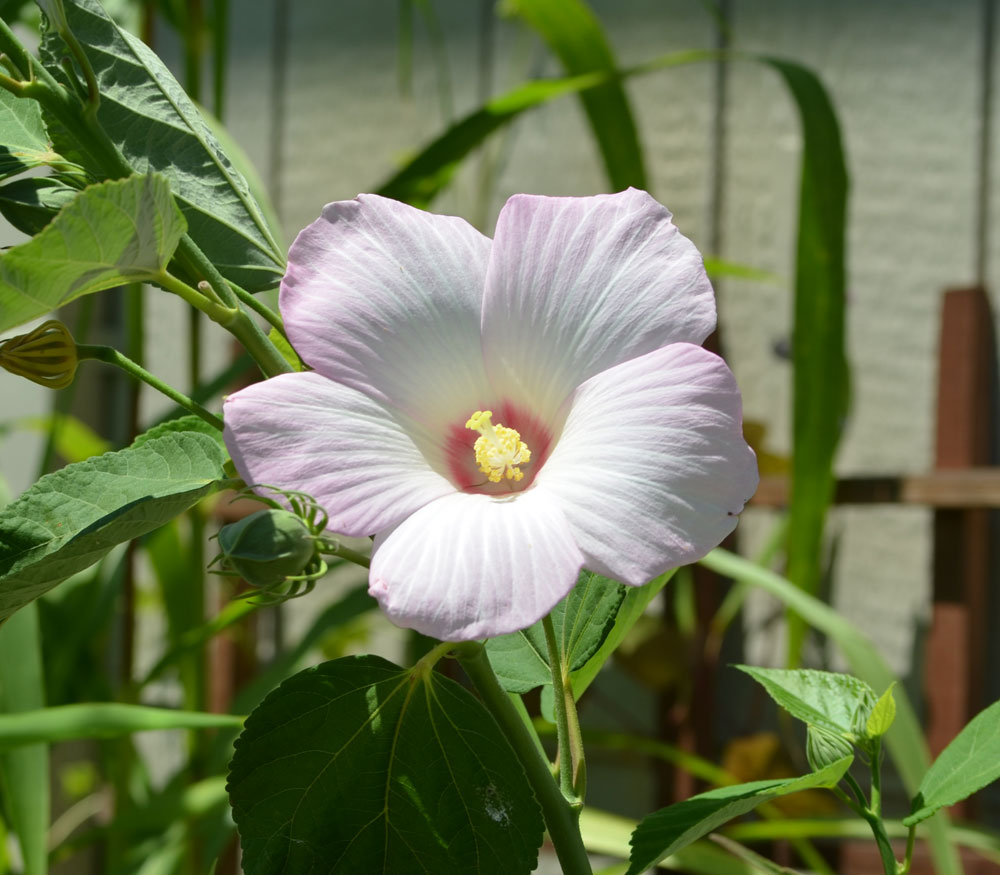 |
Hibiscus palustris Swamp Rose Mallow |
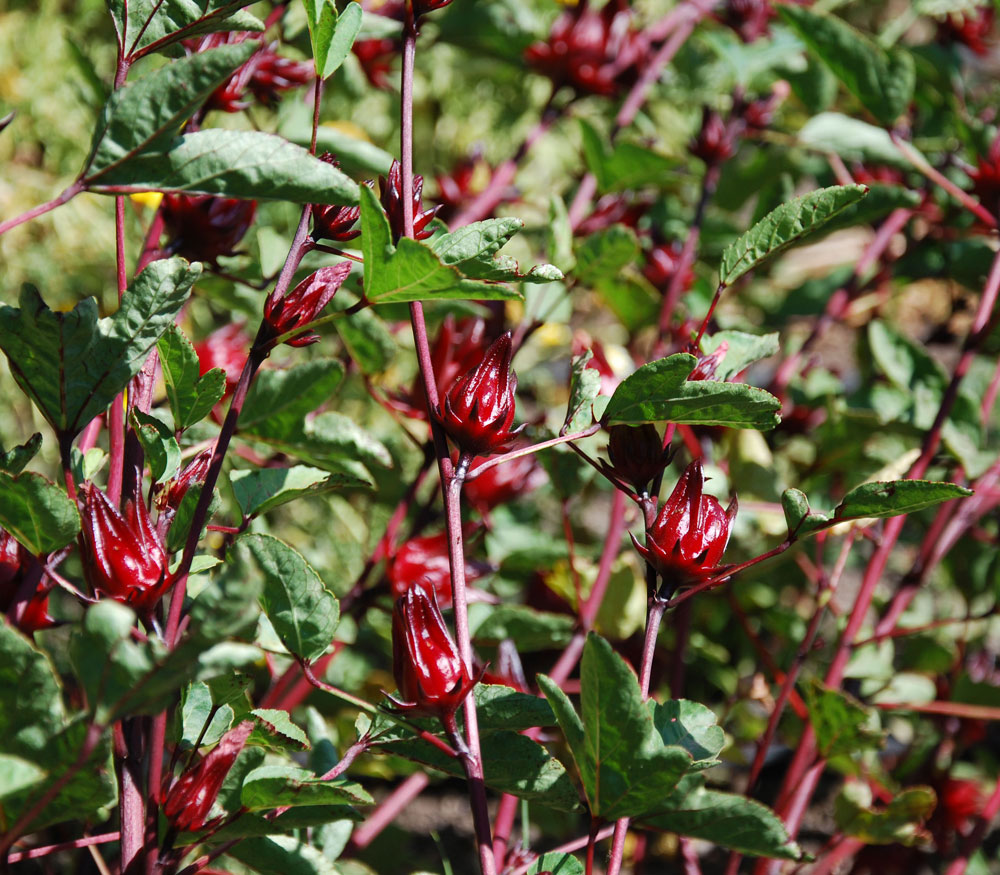 |
Hibiscus sabdariffa Roselle |
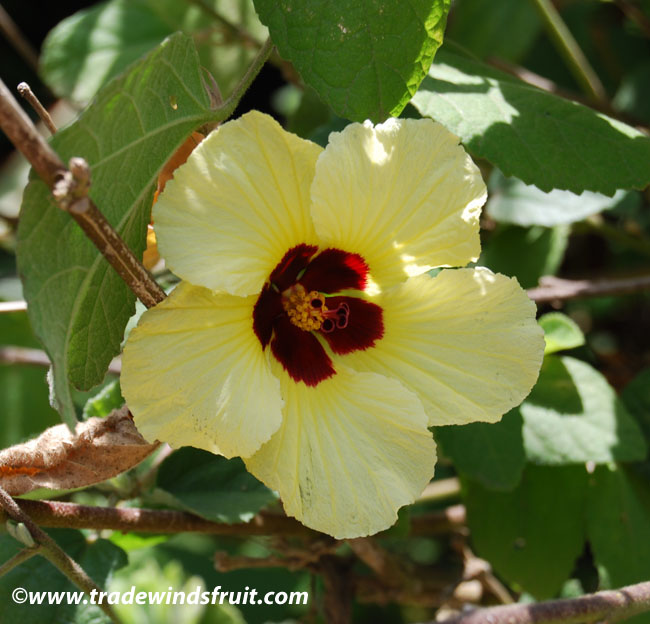 |
Hibiscus taiwanensis Cream Hibiscus |
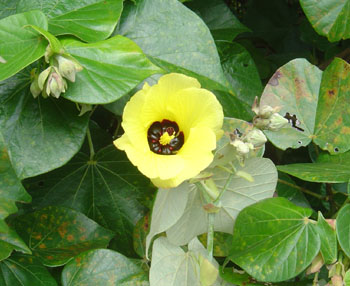 |
Hibiscus tiliaceus Beach Hibiscus |
 |
Theobroma bicolor Mocambo |
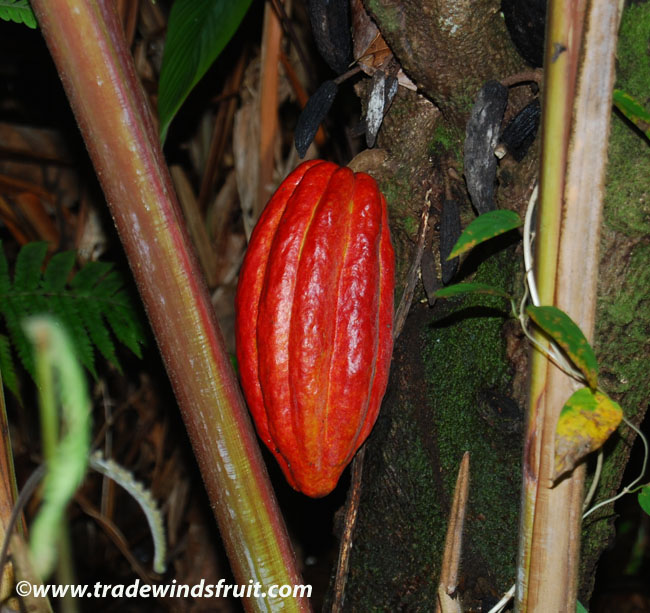 |
Theobroma cacao Cacao |
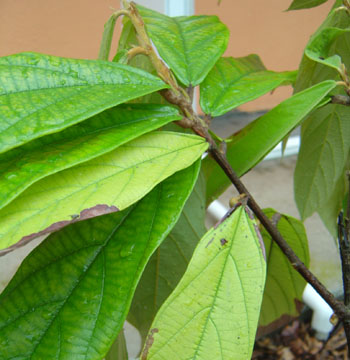 |
Theobroma grandiflorum Cupuassu |
 |
Theobroma speciosum Cacaui |
 |
Theobroma subincanum Cupui |

